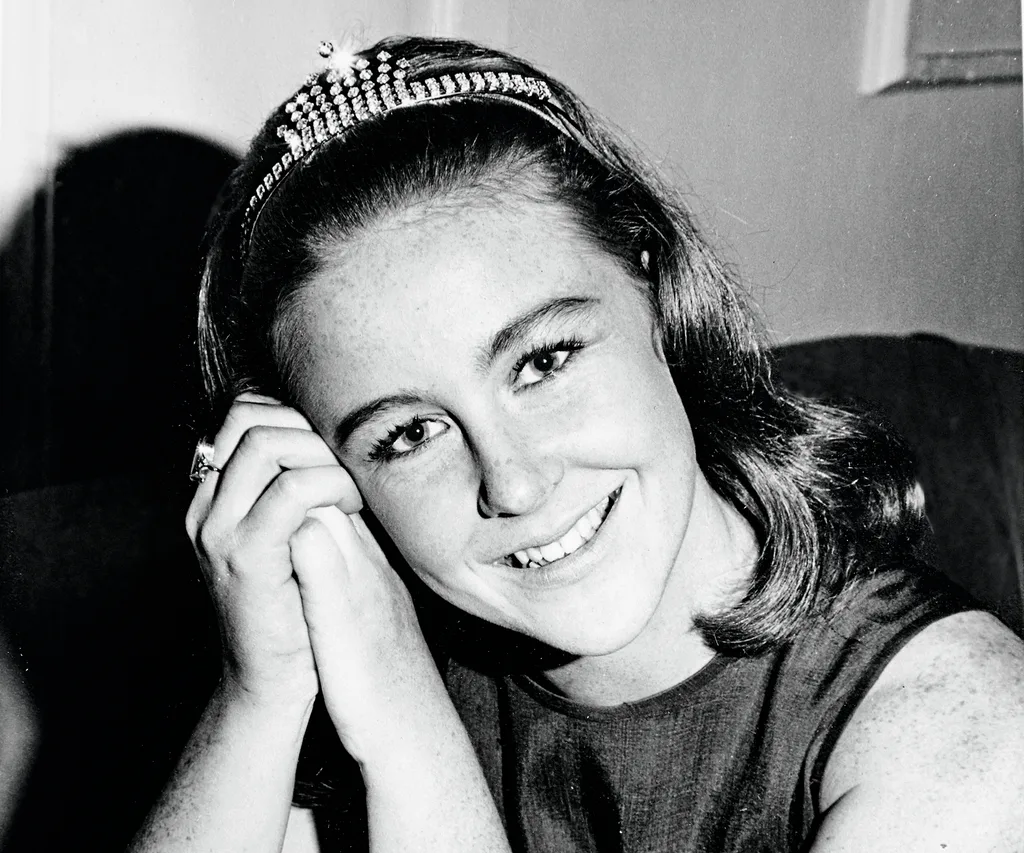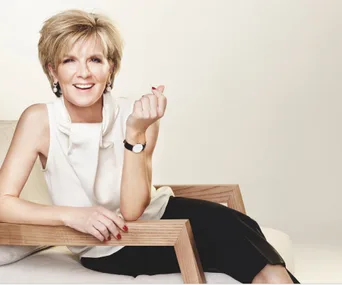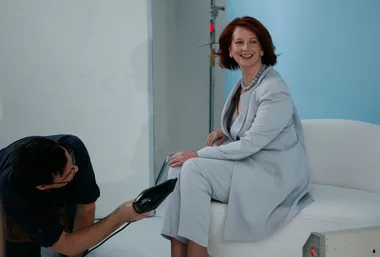She is the straight-backed and outspoken international lawyer who triggered a political firestorm when she released a critical report into children in immigration detention shortly after Tony Abbott’s government came to power.
But despite repeated personal criticism and calls for her resignation, Professor Gillian Triggs is steadfastly refusing to budge from her role as president of the Human Rights Commission.
As she approaches her 70th birthday, she opens up about herself in an exclusive interview with The Australian Women’s Weekly.
Speaking from her home in Sydney, Prof Triggs discusses everything from her early life as a professional child ballerina in post-war Britain and being crowned Miss University as a Melbourne law student to her work as a globe-trotting lawyer and having a daughter with a profound disability.
Victoria was born with Edwards syndrome, a chromosomal disorder associated with organ abnormalities, defects and an intellectual disability.
Explaining the difficult decision, Professor Triggs said having two toddlers at home and with three children under four it was “very difficult” to look after Victoria.
She decided to give her daughter to the United Church’s respite care.
“I said, ‘I’m really reluctant to leave her with you because I would feel terrible if she died’. But she said she had experience looking after (high-needs) children so I left her holding a red-faced Victoria, and she settled her quite quickly,” recalls Triggs.
In a wide-reaching discussion, Triggs also reacts to criticism she has faced from senior government ministers – including Attorney-General George Brandis, Immigration Minister Scott Morrison and Prime Minister Tony Abbott – who have declared they have no confidence in her and called for her resignation.
Here are some highlights:

FACING THE CRITICS
“I’m able to understand it for what it is as a shallow personal attack with the aim of diverting attention from issues I am raising,” she says. “When it happens a second time around, you are much more aware why it’s happening and more able and aware of staying on the job.
“I think they are panicking and they know the Australian public by and large sees through their almost hysterical responses, that the Australian public knows I have touched a nerve.
“I would like to see the ministers take me on on the big important issues – they never attack me on the law – all they do is attack me on the personal issues. I have got the support of my colleagues and the commission – we know that we are right: we check, double check and triple check everything.”
“I’m 70 this year – I have had nearly 50 years as a professional barrister and solicitor. I feel I am doing my job. I am first and foremost a lawyer and my job is to hold the government to account with compliance to international obligations. ”
FREE LOVE, BURNING BRAS AND FEMINISM
A staunch feminist since her university days in the “free love, burning the bra and the Pill” era of the 1960s, Professor Triggs says the big pay gap between men and women in Australia is “dreadful”.
“We honestly believed the world had totally changed in the 1960s,” she says. “We thought women would have equal pay, become prime ministers, be equally represented in parliament and on boards.
“But young women don’t want to be feminists these days.. they don’t seem to like confrontation and politics. What I tell my young ones now is, ‘keep it up’.”
It’s hard to imagine given her immaculately-groomed corporate image today – but Prof Triggs used to be a bit of a hippie at university. “I didn’t wear a bra for years,” she says. “I wore flowing scarves around my head and beads around my neck and I listened to Bob Dylan.”

Triggs at Miss University 1966.
PAGEANTS, PISTOLS AND POLICE OFFICERS
As one of only a couple of dozen female law students in her year at the University of Melbourne, Prof Triggs was crowned Miss University in 1966. “It wasn’t a swimsuit competition or anything like that,” she says. “I made my own emerald-green silk evening dress, which I think impressed [the judges].”
Once she finished her degree, Prof Triggs went to Texas on a scholarship to do her masters. After impressing the bosses during an internship with the Dallas Police
Department, she landed a job interpreting new civil rights legislation introduced following the assassination of John F Kennedy
“I used to go out with the patrol officers,” she says. “I learnt to shoot a pistol – it was huge fun.”
Since then, she has worked as a lawyer, been on an expedition to Antarctica , held various senior positions at the University of Melbourne, spent stints in Paris and London, and moved to Sydney in 2007.
She was approached by former Labor Attorney-General Nicola Roxon to take up her current position as president of the Human Rights Commission.
CHILDREN IN DETENTION
Did the political uproar over the timing of the children in detention report (the Abbott Government says it should have been undertaken and published during the previous Labor Government’s rein when the number of children held in immigration was at its highest) divert attention away from the actual issue?
“I think it certainly detracted from our report,” Prof Triggs says. “I’ve been urging people to read it.” She says she was glad the report’s key findings had been confirmed by the Government’s Moss Review and the United Nations.

Triggs with daughter, Victoria.
FAMILY AND THE TRUTH ABOUT HAVING A DAUGHTER WITH A DISABILITY
Prof Triggs lives with her husband Alan Brown, 80, a former Australian diplomat. She has a son James, a lawyer based in Paris, and Alexandra, a teacher and artist in Melbourne, from her first marriage to lawyer Sandy Clark.
She became a grandmother when James and his partner Marie had a baby daughter Sia this year.
“I’m very fortunate in having a terrific family,” she says. “They support me when things are bad.”
Prof Triggs also had a daughter Victoria, who was born with a profound disability called Edwards syndrome. Although she wasn’t expected to survive at birth, she defied the odds and lived to the age of 20.
The most hurtful criticism levelled at Prof Triggs since she joined the Human Rights Commission has been the allegation that put Victoria into care and is therefore unfit for her current role.
“I knew that was a lie,” she says. “My friends and family knew that was a lie so there was very little point in dignifying it with a rebuttal.”
Prof Triggs talks in depth about Victoria in new issue of The Weekly, on sale from today.
To read more on Gillian Triggs, see the new issue of The Weekly on sale today.



